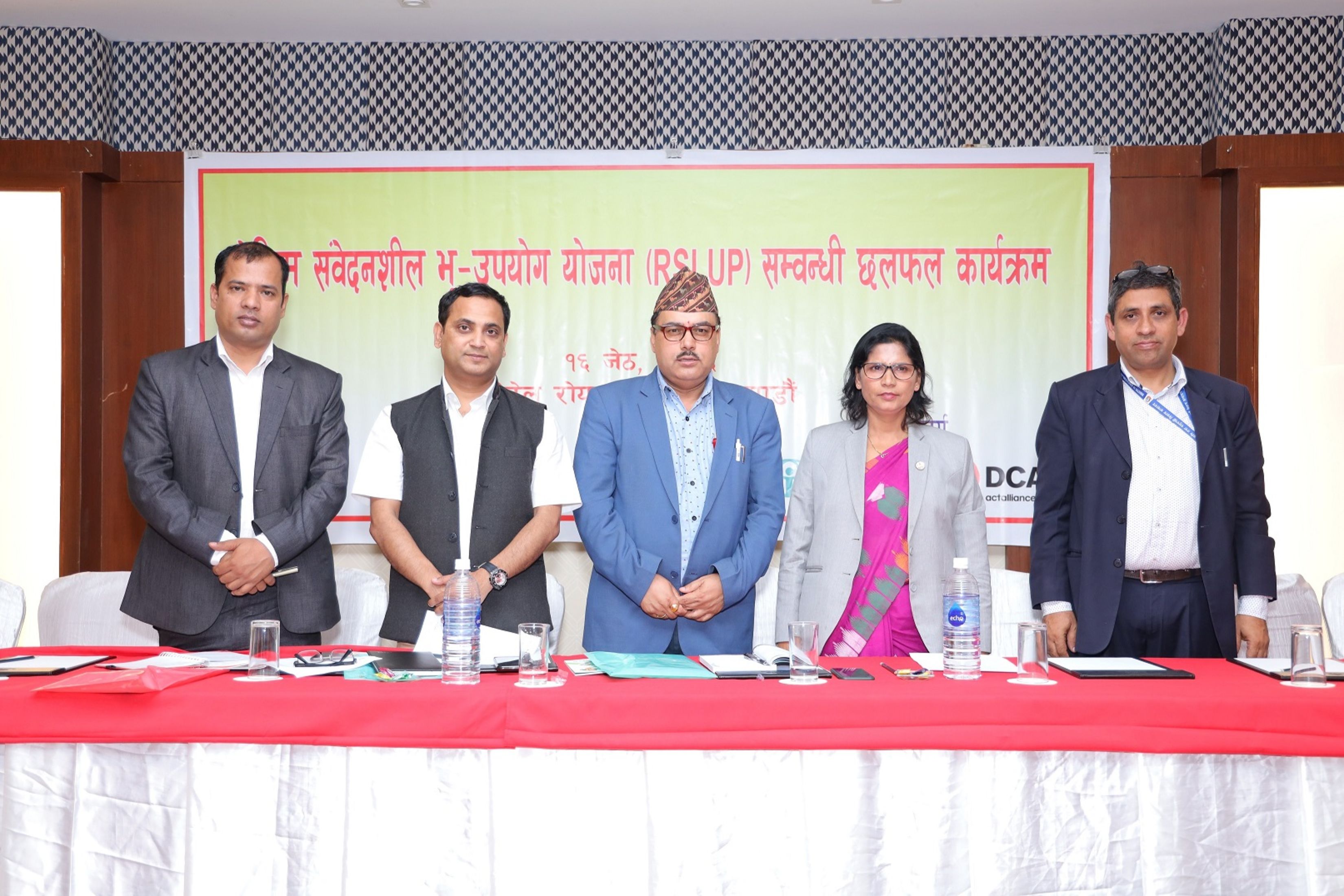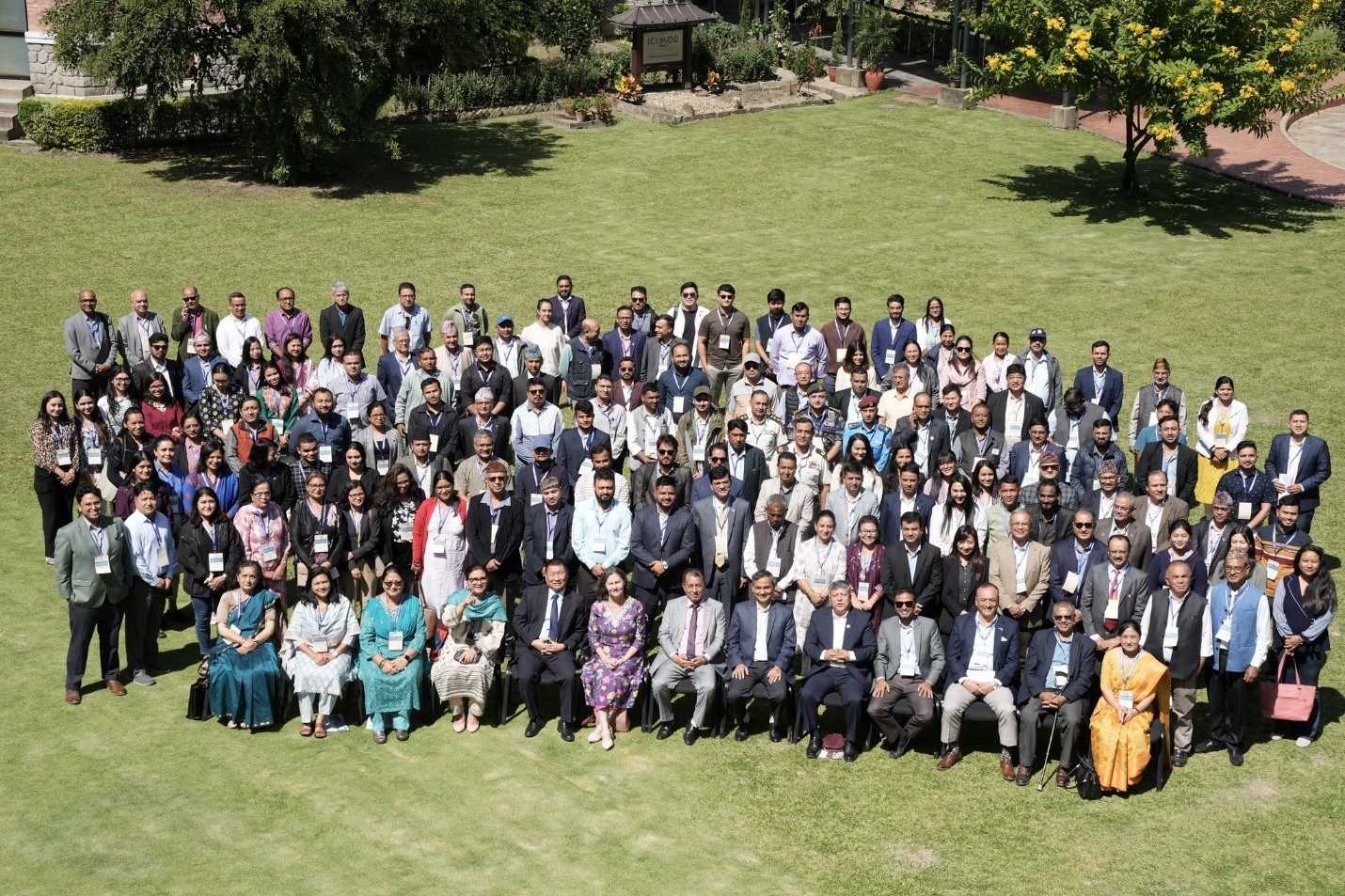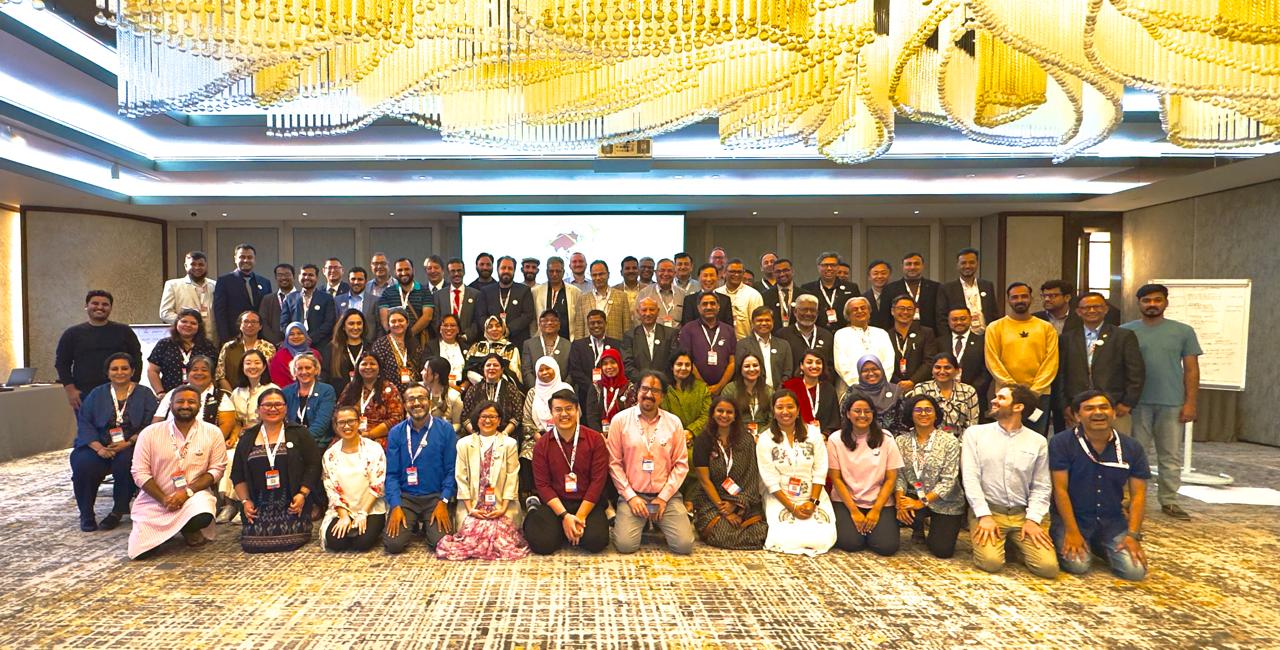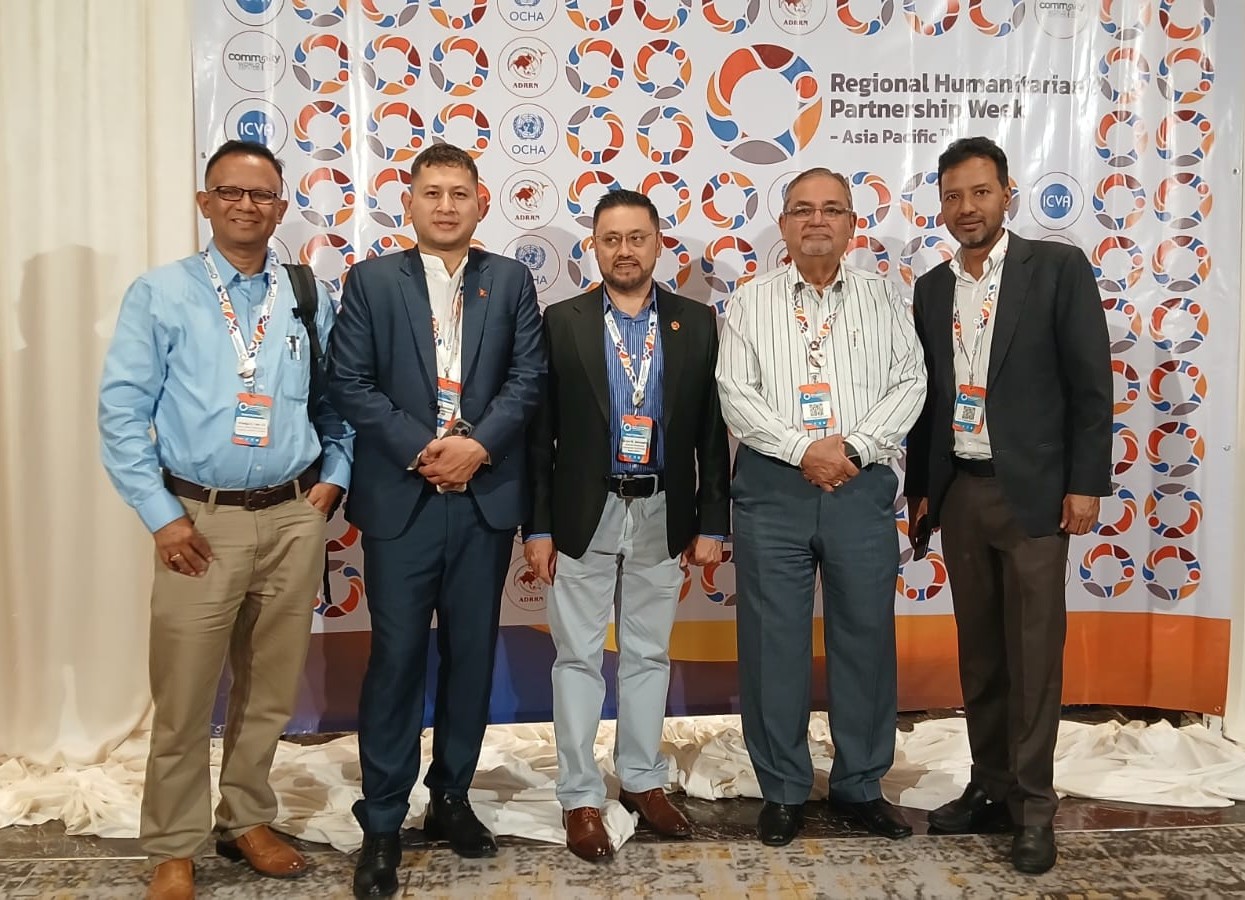Discussion Program on Risk Sensitive Land Use Planning Held in Nepal

Kathmandu, Nepal - On May 30th, 2019, a comprehensive discussion program on Risk Sensitive Land Use Planning (RSLUP) took place in Nepal. The event, chaired by Mr. Surya Bahadur Thapa, Chairperson of DPNet-Nepal, had the honorable presence of Padma Kumari Aryal, Minister of Land Management, Cooperatives, and Poverty Alleviation, as the chief guest. Mr. Ram Prasad Bhattarai, Vice Chairperson of DPNet-Nepal, delivered the welcome remarks, outlining the objectives of the program. The event was efficiently conducted and moderated by Raju Thapa, General Secretary of DPNet-Nepal, and witnessed the participation of 62 individuals representing government agencies, I/NGOs, and donors.
Key Highlights
Mr. Anish Joshi from Genesis presented an overview of RSLUP, discussing its concept, and working procedures, and illustrating technical aspects through relevant examples.
Minister Padma Kumari Aryal expressed her appreciation for the workshop's outcomes and emphasized that the decisions and reports generated from the event would serve as valuable resource material for the ministry. She underscored the importance of identifying the purpose of land and classifying it accordingly to mitigate disaster risks and prevent unplanned settlements. Minister Aryal highlighted the allocation of funds in the fiscal year 2075/76 budget for utilizing LIDAR technology to assess the land status and prepare accurate maps. She shared that 27% of the land in Nepal has been mapped, with 33% utilized for various purposes. The minister emphasized the significance of sustainable land use in achieving the national goal of a Happy and Prosperous Nepal. Furthermore, she encouraged experts and local representatives to contribute their suggestions and experiences, which would be incorporated into the regulation.
Mr. Bimal Gadal from ADRA Nepal presented the problem statement, causes, and approaches related to RSLUP.
Mr. Kalanidhi Devkota, Executive Director of the Municipality Association of Nepal (MuAN), highlighted that although the constitution of Nepal does not assign land management responsibility to the local level, it does emphasize land conservation. He mentioned that while developing RSLUP, local levels do not have a legal basis, but the concurrent plan could include it. MuAN expressed its readiness to support the development of RSLUP in Nepal and stressed the need to initiate dialogue at the local level. Mr. Devkota also emphasized the importance of linking land use patterns during RSLUP development.
Mr. Rajendra Pyakurel, Senior Program Officer at the National Association of Rural Municipalities (NARMIN), stressed the need for technical support to complement the capacity of the government in supporting local governments. He emphasized the dissemination of policies to the local level for effective implementation, noting that RSLUP is not solely the responsibility of municipalities but also rural municipalities. NARMIN expressed its commitment to collaborate on the RSLUP campaign.
Mr. Sumeer Koirala, Survey Officer at the Department of Survey, provided insights into land use programs in Nepal. He explained the classification of land into 11 different sectors according to the 2015 land use policy. Mr. Koirala highlighted that the policy prioritizes not only utilizing barren land but also promoting land pooling. He shared the current status of land use mapping in Nepal, indicating that maps have been prepared for 355 local levels in 30 districts, with reports and databases available in 27 districts. Additionally, he mentioned the implementation of the Land Use Mapping Implementation Support Program in seven municipalities across the country's provinces.
Dr. Ganga Dutta Acharya, Under Secretary at the Ministry of Agriculture and Livestock Development, raised the long-standing issue of land use in agriculture. He highlighted the conversion of productive land into residential areas ("Ghaderi") when irrigation facilities and roads are introduced, adversely impacting the agriculture sector. Dr. Acharya emphasized the need to focus on both post-disaster response and long-term disaster mainstreaming. He called for the utilization of indigenous practices like terracing to address disaster risks effectively.
Following the presentations, the floor was opened for discussion and responses from participants. Concerns were raised regarding legal provisions for land use planning, the code of conduct for local-level representatives involved in RSLUP, access to land use maps developed by the Department of Survey, coordination mechanisms, resource duplication, and the need for similar discussions at the provincial and local levels.
Closing
Mr. Surya Bahadur Thapa, Chairperson of DPNet-Nepal, delivered the closing remarks, expressing gratitude to the panelists for their insightful presentations and the local-level representatives and participants for their active involvement and interaction. He extended his thanks to DCA and ADRA Nepal for their collaboration in organizing the event. Mr. Thapa proposed the formation of a task team to provide suggestions to the Ministry of Land Management, Cooperatives, and Poverty Alleviation, resulting in the establishment of an eight-member team dedicated to this task.
The discussion program on Risk Sensitive Land Use Planning concluded with a strong commitment to addressing the challenges and opportunities associated with land use planning in Nepal. The insights and recommendations shared during the event will contribute to the development of effective policies and strategies that promote sustainable and risk-sensitive land use across the country.











